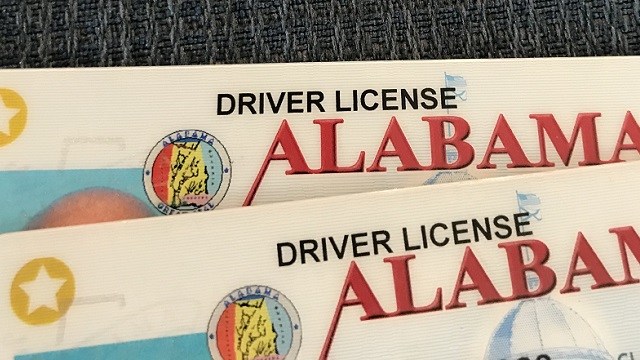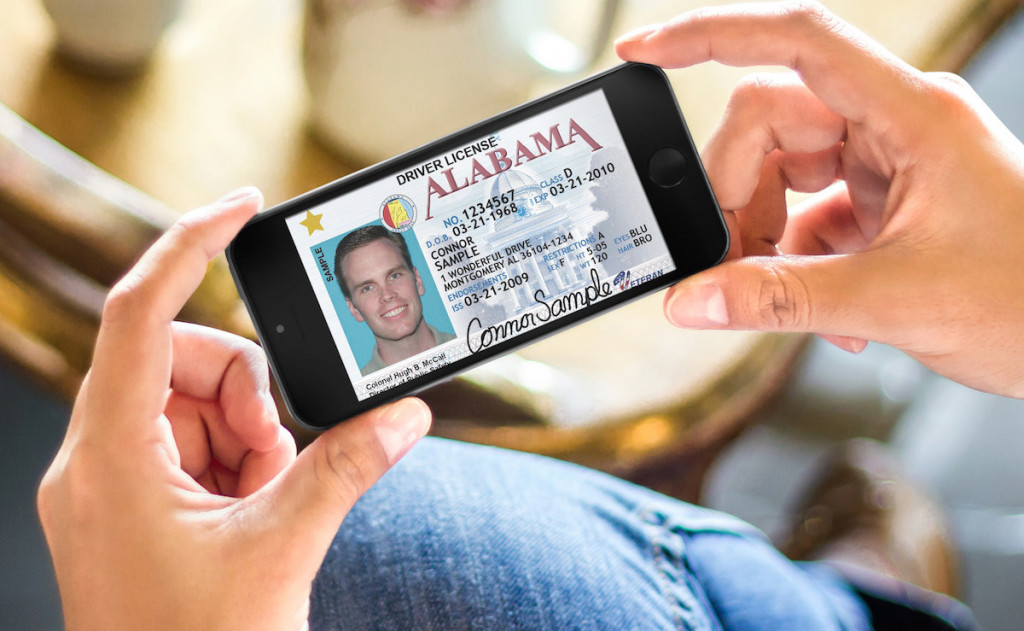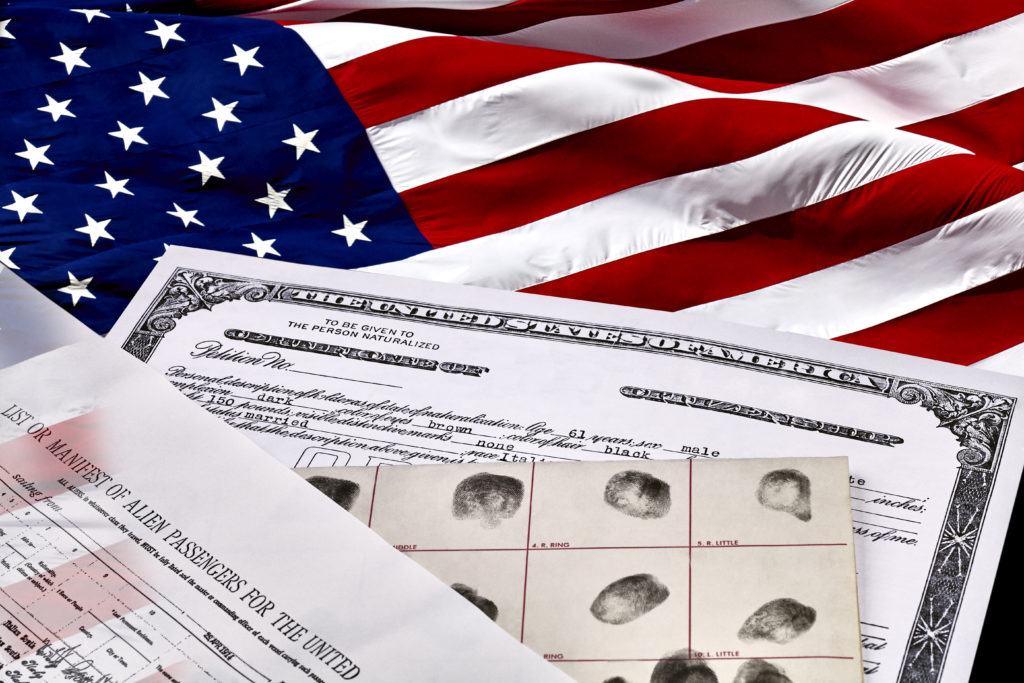Alabama extends online driver license renewal due to COVID-19 pandemic

The State of Alabama is extending online driver license renewals due to the COVID-19 pandemic. Governor Kay Ivey made the announcement Tuesday, allowing Alabama driver license holders to be allowed to renew online a second time during a 12-year period. Until now, driver license holders were limited to one online renewal every eight years. As part of the Alabama Law Enforcement Agency’s (ALEA) commitment to public safety, and in response to the ongoing COVID-19 pandemic, the agency’s Driver License Division has temporarily expanded its online renewal process at www.alea.gov. Customers who renewed their Alabama driver licenses using ALEA’s online system prior to the pandemic may now renew a second time during the next four years. “COVID-19 has presented many challenges in our daily lives. As we work tirelessly to mitigate the spread of the virus in our state and to offer some relief to our citizens, I am proud that ALEA will be enabling more online driver license renewals,” Ivey said. “In Alabama, we want to lift burdens and ensure the health and safety of every Alabamian. This extension is certainly an effort to help do just that.” Since COVID-19 began to affect Alabama citizens, ALEA has, on more than one occasion, modified its Driver License Division operations to ensure the health and safety of both its customers and employees. “We are pleased to offer this extension to ease the minds of customers with health-related concerns during this precarious time, as well as reduce the number of in-person transactions at ALEA’s’s Driver License Examining Offices, county probate, and license commissioners” offices,” added ALEA’s’s Secretary Hal Taylor.
State resumes normal driver license operations; record number of Alabamians served

Despite the challenges of COVID-19, the Alabama Law Enforcement Agency’s (ALEA) Driver License Division has been working hard to serve the citizens of the state of Alabama despite limited in-person operations. The division was forced to close its offices to the public on Friday, March 27, due to the coronavirus pandemic. Governor Kay Ivey issued a Safer at Home Order, ALEA’s Driver License Division began a “soft opening” at 13 locations across the state on Monday, May 4. In weeks that followed, the agency gradually reopened other offices. By Monday, June 29, 95% (69 of its 73 locations) will be open to the public. “We meticulously and strategically developed a plan to reopen our Driver License offices to avoid putting anyone at risk during this precarious time. The absolute last thing we wanted was to contribute to the spread of the coronavirus,” ALEA’s Secretary Hal Taylor said. “In addition, ALEA’s Driver License Division is striving to alleviate the accumulation of a COVID-19-related backlog, and it will continue to utilize new and innovative procedures to reduce the congestion at Driver License offices throughout the state.” Since the soft opening in early May, 66,244 customers have received face-to-face service in Driver License offices, and 98,167 online customers were served between March 16 and June 19. ALEA saw a significant increase in online transactions, whereas, in 2019, only 33,337 were served. On Monday, June 2, the agency resumed Class D Road/Skills tests on a limited basis. Between June 2 and June 19, 5,544 road tests were completed, which is an increase of 115% as compared to the same period in 2019. Currently, Driver License personnel have administered 6,922 Class D Road/Skills tests for regular driver licenses and 706 Commercial Driver License Skills tests. Another 8,000 customers have been served through ALEA’s partnership with the Alabama State Department of Education. This partnership helped streamline the Yellow Card/Vessel License process for 16-year-old students who pass the required road test with an instructor. The State Department of Education also has resumed Drivers Education programs to allow students to catch up from the spring semester. “We continue to ask everyone in need of Driver License services to adhere to the Alabama Department of Public Health’s guidelines and use masks during visits to Driver License locations,” Taylor added. “It is important we all follow guidelines to curb the spread of the virus.”
New law could help thousands qualify for Alabama hardship driver’s license

The Alabama Law Enforcement Agency has begun accepting applications to restore limited driving privileges to thousands who lost their licenses due to issues not related to safety thanks to a new law that just went into effect. Senate Bill 55, which passed during the 2018 session was sponsored by Senator Clyde Chambless and signed into law by Governor Kay Ivey, and will allow applicants will be able to apply for a “hardship license.” According to a Fact Sheet in support of the bill created by Alabama ARISE, “This bill would allow people who need to take their children to school, go to the doctor, or help family members see a doctor to do so without breaking the law. SB 55 is a reasonable, common-sense response to a problem that hurts thousands of Alabamians every year.” “We’re certain this could help tens of thousands of people,” Dev Wakeley, a policy analyst for ARISE told the Montgomery Advertiser, “This is a huge step that will help so many people.” According to the application, which is available on the ALEA website, the following information is required for consideration: List of anticipated places applicant will travel (work, home, church, etc.) and address of each Documentation for all anticipated routes applicant will travel (using Google Maps, MapQuest, etc.) List of anticipated times of travel (in relation to work shifts, religious ceremony times, etc.) List and description of all specific vehicles applicant may use (including the Owner, if not Applicant, Make, Model, Tag No.); PROOF OF MANDATORY LIABILITY INSURANCE SHALL BE PROVIDED FOR EACH VEHICLE Supporters said that the law was needed because suspensions disproportionately burdened the poor. Callie Greer, a community activist in Selma, told the Advertiser, “You could never pay your way out of the situation. It was a no-win situation. It’s like they’re throwing dirt on you while you’re trying to climb out of this hole.” Previously, hardship licenses were only available to people on work release or with administrative supervision, according to a report by WSFA.
SPLC sues ALEA for suspending Alabama licenses for unpaid traffic tickets

The Southern Poverty Law Center (SPLC) is challenging Alabama’s practice of suspending drivers licenses of individuals who fail to pay traffic tickets, arguing it violates the Fourteenth Amendment by “punishing persons simply because they are poor.” The SPLC filed a lawsuit against the Alabama Law Enforcement Agency (ALEA) last Monday in which it claims roughly 23,000 Alabamians are without a valid divers license because they’ve been unable to pay traffic tickets. “A suspended driver’s license has disastrous implications for individuals living in poverty,” said Micah West, SPLC senior staff attorney. “The U.S. Constitution prohibits the state from suspending a person’s driver’s license without first determining their ability to pay. Through this lawsuit, we hope to end this illegal practice in Alabama.” The lawsuit describes how, under an existing rule of criminal procedure, Alabama courts routinely suspend driver’s licenses for nonpayment of traffic tickets without prior notice, an inquiry into an individual’s ability to pay, or an express finding that nonpayment was willful, as required by the Due Process and Equal Protection Clauses to the U.S. Constitution. The ALEA carries out these suspensions and does not reinstate driver’s licenses until the individual has paid all outstanding fines and costs to the court. The SPLC filed the suit on behalf of three Alabama residents who had their licenses suspended. They seek a preliminary injunction to halt the practice while the case is before the court. Earlier this year, SPLC filed a lawsuit challenging similar practices in North Carolina and reached an agreement with the Mississippi last year that will result in the state lifting failure to pay suspensions for over 100,000 people. Lawsuits have also been filed challenging the suspension of driver’s licenses for nonpayment in Tennessee, Michigan, California and Virginia.
With the Census on the horizon, Alabama’s growing population already impacting driver’s license numbers

Sure the 2020 Census may still be more than a year away, but Alabama’s growing population is already making an impact when it comes to state issued driver’s licenses. On Tuesday, the Alabama Law Enforcement Agency (ALEA) said it’s adding an eighth digit to all new driver licenses issued by the state starting Dec. 1 to account for the state’s growing population. According to the AP, “Census statistics show the state’s estimated population at 4.9 million people in 2017. That’s an increase of about 2 percent since 2010.” But driver’s license numbers aren’t the only thing 2020 U.S. Census could impact. Depending on participation levels and what the results indicate, Alabama risks losing a seat in the U.S. House of Representative as well as a vote in the Electoral College, and also federal funds. Alabama’s Census lawsuit Back in May, Alabama 5th District U.S. Rep. Mo Brooks and Alabama Attorney General Steve Marshall filed a lawsuit against the federal government over what they said was the Census Bureau‘s “unlawful” decision to include of illegal immigrants in census data “used to determine the apportionment of the U.S. House of Representatives and the Electoral College.” “If the U.S. Census Bureau follows through with its plan to include illegal aliens in the 2020 census for purposes of apportionment, Alabama will lose both a seat in the U.S. House of Representative and a vote in the Electoral College,” explained Marshall. “Alabama’s loss will be another state’s gain, as states with a growing illegal alien population will be the beneficiary of this reapportionment. I have joined with Congressman Mo Brooks in filing suit against the federal government to stop the inclusion of illegal aliens in the census’s apportionment population. The Constitution does not permit the dilution of our legal residents’ right to equal representation in this manner.” The U.S. Census Bureau has until Tuesday, Nov. 13 to respond to the state’s lawsuit seeking to exclude immigrants living in the country illegally from U.S. Census counts.
House committee continues work on Alabama driver’s license issues

Although the state of Alabama’s 2017 Legislative session is still more than a month away, some Alabama lawmakers have been working hard during their down-time to solve the state’s many issues surrounding drivers licenses. Formed after 31 rural Drivers License offices were shuttered in 2015 due to funding problems, the House Interim Committee on Driver’s License Review is endeavoring to reduce wait times and find new methods for making driver’s license offices more accessible to all Alabamians. Since it was established by a House Resolution co-sponsored by 56 Republican members, the committee has held meetings across the state. The importance of the committee’s work was underscored by a Wednesday announcement from the U.S. Department of Transportation (DOT), which concluded proposed closures and service reductions at certain driver’s license offices in the state would underserve the African-American community and violate the Civil Rights Act. The DOT and Alabama Law Enforcement Agency (ALEA) have thus reached an agreement to ensure all Alabamians have access to driver’s licensing programs. The committee will continue to work to further improve the driver’s licensing process. “Our focus is to find ways to increase customer service for Alabama taxpayers trying to get a driver license,” said Committee Chair Fairview-Republican, state Rep. Randall Shedd. “It is unacceptable that individuals are having to take time off of work, stand in line for hours, and in some cases still not receive service. We are serious about solving this problem.” Additionally, the committee has discussed changing requirements to allow probate judge offices to take on clerical activities such as adding veterans, vessels, and other routine classification changes to driver’s licenses instead of driver’s license offices. This adjustment would free up the time spent by license office employees on these minor adjustments and could also eliminate individuals having to wait all day for a routine change. Rural Alabama is well represented with two officers of the House Rural Caucus serving on the committee, Hayden-Republican, state Rep. David Standridge chairs the Rural Caucus and Shedd serves as Treasurer. “The Rural Caucus recognized this as a problem from the beginning. People in rural Alabama should have access to state services without regard to their income level or where they live,” Standridge expalined. “As a member of this committee, I support Chairman Shedd in his efforts to make our driver’s license offices more accessible and efficient.” The House Interim Committee on Driver’s License Review is scheduled to meet again next week on Wednesday, Jan. 4, 2017 at 10:30 a.m. in Room 410 of the Alabama Statehouse. The committee is required to report its findings and submit suggestions to the House of Representatives no later than the tenth legislative day of the 2017 regular session. The following individuals serve on the committee: Bessemer-Democrat, state Rep. Louise Alexander Newville-Democrat, state Rep. Dexter Grimsley Killen-Republican, state Rep. Phillip Pettus Hayden-Republican, state Rep. David Standridge Mobile-Republican, state Rep. Margie Wilcox
New license requirements to demonstrate U.S. citizenship begin Aug. 1

Beginning Aug. 1, requirements for some Alabama state licenses and permits will require each applicant to demonstrate U.S. citizenship or prove lawful presence in the U.S., according to the Alabama Department of Public Health (ADPH). The requirements are part of the Beason-Hammon Alabama Taxpayer and Citizen Protection Act. To comply with this law, state health department will require the following for an initial permit or renewal application: A signed declaration A legible photocopy or digital copy of a document demonstrating U.S. citizenship or lawful presence in the U.S. “We cannot process an application without the signed declaration and the appropriate supporting documentation,” Karen Bishop, ADPH assistant general counsel, said. “Please check the lists of documents that demonstrate U.S. citizenship and qualified alien status on our website and bring the appropriate documents with you when you make an application. You may send a legible photocopy of the document if you are applying or renewing by mail.” Business entities are also affected for certain permits and licenses — food service establishment permits, hotel or motel permits, emergency medical service personnel or provider licenses, and radioactive material licenses — and must also provide a declaration of business ownership structure if the type of ownership or business entity is not clearly indicated on the application. The ADPH recently became authorized to use the federal government’s Systematic Alien Verification for Entitlements (SAVE) Program. ADPH will verify an applicant’s immigration status or naturalized/derived citizenship status using the SAVE Program. Citizenship or immigration status verification will only be required one time.

